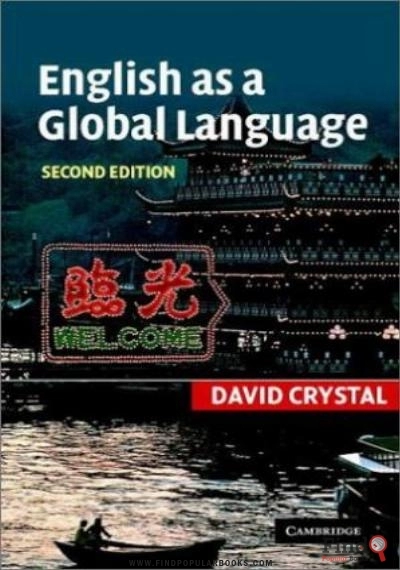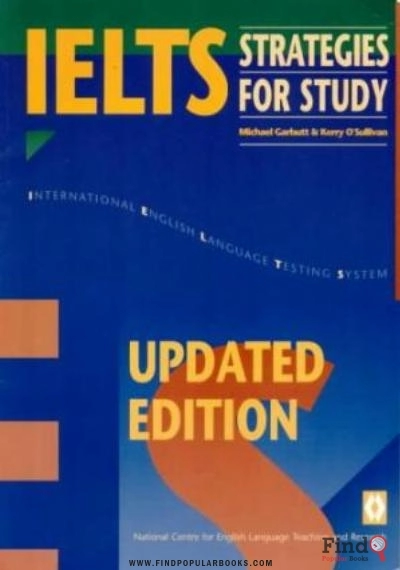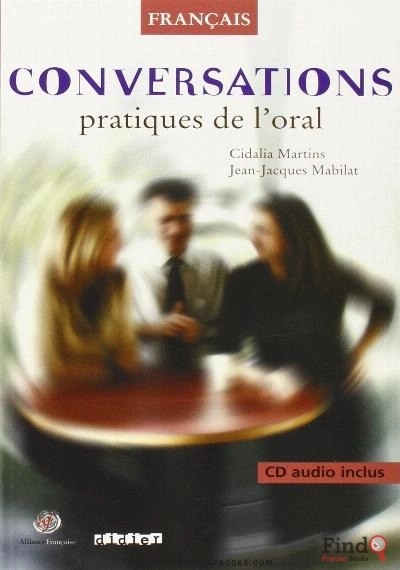
English As A Global Language
EN
Language, Linguistics & Writing 5 years ago 2471
Description
In Douglas Adams' Hitchhiker's Guide to the Galaxy, space travelers can communicate with beings from other planets by inserting a Babel fish in their ear. The Babel fish takes in what is spoken and modifies the brain activity of the user to effect a translation. Universal translators are standard equipment in science fiction involving space travel, since it is reasonable to assume that extraterrestrials will not speak English or any other earthly language. Indeed, given that there are over six thousand mutually unintelligible languages here on Earth, it seems that the technology is badly needed now. However, by the time the technology is available, there may no longer be any need for it. According to David Crystal in his book, English as a Global Language, everyone on Earth will soon speak English.
Currently English has the status of a lingua franca, a language that is used for international exchanges. Through history, different languages have served as linguae francae on a regional basis. In Europe, Latin served this role across the Roman Empire, and continued in this function for centuries after the fall of Rome because it was the language of the Catholic Church. In China, where dozens of mutually unintelligible dialects are spoken, Mandarin serves as the common language of government and intellectual exchange. And starting in the seventeenth century, French served as the international language of diplomacy until its fairly recent replacement by English.
The status of English as a lingua franca, however, is quickly transforming into that of a global language, one that nearly everyone in the world can speak. This is an unprecedented event, although there has been a trend over history toward linguistic consolidation as a result of political consolidation. The globalization of English was driven by a historical accident, namely that both world powers during the last two centuries spoke English. The language was first spread around the globe in the nineteenth century by the growing British Empire. As British political power waned at the turn of the last century, American influence and prestige was on the ascendancy, further spreading the use of English.
The globalization of English is further driven by the growing global economy. More and more people around the world are getting involved in the global marketplace of goods, jobs and ideas. But to participate in this marketplace, you need to speak English. And if it is not your native language, you need to learn it, or you will be left behind. Although there are more native speakers of Mandarin Chinese than there are of English, there are more people who speak English as a second language than any other language in the world. In fact, there are more people who speak English as a second language than as a first language. Combining first and second language users, we find that English is the world's most widely spoken language. Still, only one in four people know English, clearly indicating that English is not yet a true global language.
Crystal contemplates two possible futures for global English. In his utopia, he sees all people in the world speaking some sort of World Standard Spoken English when communicating internationally and their native language locally and at home. Crystal points out that even native English speakers would in a sense be bilingual because WSSE would be different from their native dialect. This view of universal bilingualism may seem odd to the monolingual Anglophone, but Crystal points out that the majority of the world's population is already at least bilingual. Thus, the multitude of languages in the world would remain vibrant while WSSE would serve as an auxiliary for international communication.
In Crystal's dystopia, on the other hand, he sees all people of the world as Anglophone monolinguals. In his companion book Language Death (2002, Cambridge University Press), he examines how and why languages die and deplores the increasing rate of language extinction. In the current book, he touches on this subject again. Crystal views the loss of linguistic diversity as analogous to the loss of biological diversity, with similar catastrophic consequences for the welfare of humanity. However, Crystal's reasoning is flawed and tainted with gushing romanticism for the polyglot throng.
Crystal's frustration with English's global linguistic dominance would be justified if the language were being pushed upon the world's population by some imperialistic force. But it is not. The globalization of English is a grass-roots movement. People want better lives for themselves and for their children, and they see the way to the good life is through participation in the global marketplace. Thus, they learn English and teach it to their children, often not caring whether the younger generation even learns the language of their ancestors. And they do this in spite of governmental attempts to preserve or resurrect heritage languages.
It is often suggested that a common world language would lead to world peace by reducing misunderstandings and miscommunications, but Crystal rightly points out the fallacy in that way of thinking. Throughout history, bloody wars have been fought by those who speak the same language, as for example the American Civil War, the breakup of Yugoslavia or the unrest in Northern Ireland today. However, there is a sense in which a common world language would increase the chances of world peace, and that is through the global marketplace. As the world becomes more interconnected and interdependent, warfare becomes a less profitable means of resolving political problems.
Crystal hopes for a future in which nation-states conduct their commerce in a common language while maintaining their national languages at home. But there is a bolder, brighter vision of the future--one in which the globe is unified economically, politically and linguistically. As members of a single community, there would be free movement of people, goods and ideas around the globe, facilitated by a single global language. That language would likely be a descendant of English, but with continued admixtures from many other languages.
There is no particular reason why English is better suited than others to serve as a global language, in spite of frequent claims of English linguistic superiority. The language mavens (to use Pinker's term) will often declare English syntax simpler or more logical and its vocabulary richer and more expressive than those of other languages, but neither is true. English is just an ordinary language with no advantage other than that it is the language of the current economic and political superpower in the world.
As the global economy develops, the number of English speakers will continue to increase. The development of some sort of World Standard Spoken English is virtually inevitable. It is also quite likely that the vast majority of the world's languages will die out because their speakers will no longer be interested in using them. Instead, they will be learning the global language so that they can claim their rightful place as citizens of the world.
Currently English has the status of a lingua franca, a language that is used for international exchanges. Through history, different languages have served as linguae francae on a regional basis. In Europe, Latin served this role across the Roman Empire, and continued in this function for centuries after the fall of Rome because it was the language of the Catholic Church. In China, where dozens of mutually unintelligible dialects are spoken, Mandarin serves as the common language of government and intellectual exchange. And starting in the seventeenth century, French served as the international language of diplomacy until its fairly recent replacement by English.
The status of English as a lingua franca, however, is quickly transforming into that of a global language, one that nearly everyone in the world can speak. This is an unprecedented event, although there has been a trend over history toward linguistic consolidation as a result of political consolidation. The globalization of English was driven by a historical accident, namely that both world powers during the last two centuries spoke English. The language was first spread around the globe in the nineteenth century by the growing British Empire. As British political power waned at the turn of the last century, American influence and prestige was on the ascendancy, further spreading the use of English.
The globalization of English is further driven by the growing global economy. More and more people around the world are getting involved in the global marketplace of goods, jobs and ideas. But to participate in this marketplace, you need to speak English. And if it is not your native language, you need to learn it, or you will be left behind. Although there are more native speakers of Mandarin Chinese than there are of English, there are more people who speak English as a second language than any other language in the world. In fact, there are more people who speak English as a second language than as a first language. Combining first and second language users, we find that English is the world's most widely spoken language. Still, only one in four people know English, clearly indicating that English is not yet a true global language.
Crystal contemplates two possible futures for global English. In his utopia, he sees all people in the world speaking some sort of World Standard Spoken English when communicating internationally and their native language locally and at home. Crystal points out that even native English speakers would in a sense be bilingual because WSSE would be different from their native dialect. This view of universal bilingualism may seem odd to the monolingual Anglophone, but Crystal points out that the majority of the world's population is already at least bilingual. Thus, the multitude of languages in the world would remain vibrant while WSSE would serve as an auxiliary for international communication.
In Crystal's dystopia, on the other hand, he sees all people of the world as Anglophone monolinguals. In his companion book Language Death (2002, Cambridge University Press), he examines how and why languages die and deplores the increasing rate of language extinction. In the current book, he touches on this subject again. Crystal views the loss of linguistic diversity as analogous to the loss of biological diversity, with similar catastrophic consequences for the welfare of humanity. However, Crystal's reasoning is flawed and tainted with gushing romanticism for the polyglot throng.
Crystal's frustration with English's global linguistic dominance would be justified if the language were being pushed upon the world's population by some imperialistic force. But it is not. The globalization of English is a grass-roots movement. People want better lives for themselves and for their children, and they see the way to the good life is through participation in the global marketplace. Thus, they learn English and teach it to their children, often not caring whether the younger generation even learns the language of their ancestors. And they do this in spite of governmental attempts to preserve or resurrect heritage languages.
It is often suggested that a common world language would lead to world peace by reducing misunderstandings and miscommunications, but Crystal rightly points out the fallacy in that way of thinking. Throughout history, bloody wars have been fought by those who speak the same language, as for example the American Civil War, the breakup of Yugoslavia or the unrest in Northern Ireland today. However, there is a sense in which a common world language would increase the chances of world peace, and that is through the global marketplace. As the world becomes more interconnected and interdependent, warfare becomes a less profitable means of resolving political problems.
Crystal hopes for a future in which nation-states conduct their commerce in a common language while maintaining their national languages at home. But there is a bolder, brighter vision of the future--one in which the globe is unified economically, politically and linguistically. As members of a single community, there would be free movement of people, goods and ideas around the globe, facilitated by a single global language. That language would likely be a descendant of English, but with continued admixtures from many other languages.
There is no particular reason why English is better suited than others to serve as a global language, in spite of frequent claims of English linguistic superiority. The language mavens (to use Pinker's term) will often declare English syntax simpler or more logical and its vocabulary richer and more expressive than those of other languages, but neither is true. English is just an ordinary language with no advantage other than that it is the language of the current economic and political superpower in the world.
As the global economy develops, the number of English speakers will continue to increase. The development of some sort of World Standard Spoken English is virtually inevitable. It is also quite likely that the vast majority of the world's languages will die out because their speakers will no longer be interested in using them. Instead, they will be learning the global language so that they can claim their rightful place as citizens of the world.
Open the next page to download PDF.
Note : This digital document is brought to you by Find Popular Books. It is intended for strictly personal use and cannot be sold under any circumstances.
Ask for books
It's 100% Free, just send us the name of book and we get it for you.

Copyrights
If FindPopularBooks® has shared your copyrighted book or your personal information.Contact us to let us know. You will receive an answer within 3 working days.
A big thank you for your understanding!
ADVERTISMENT
































